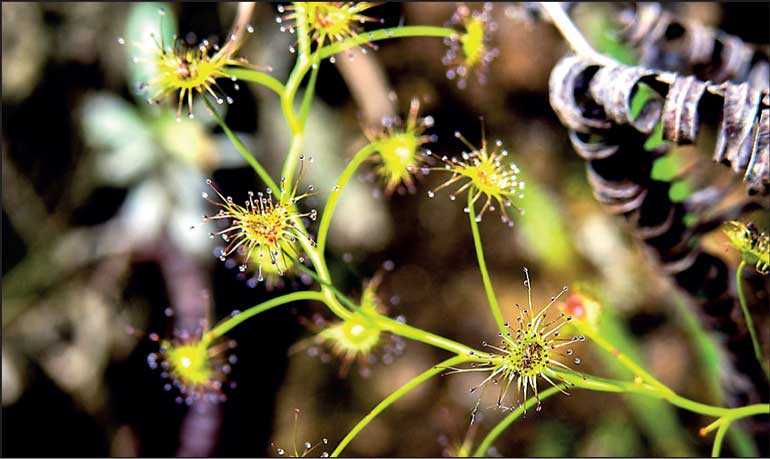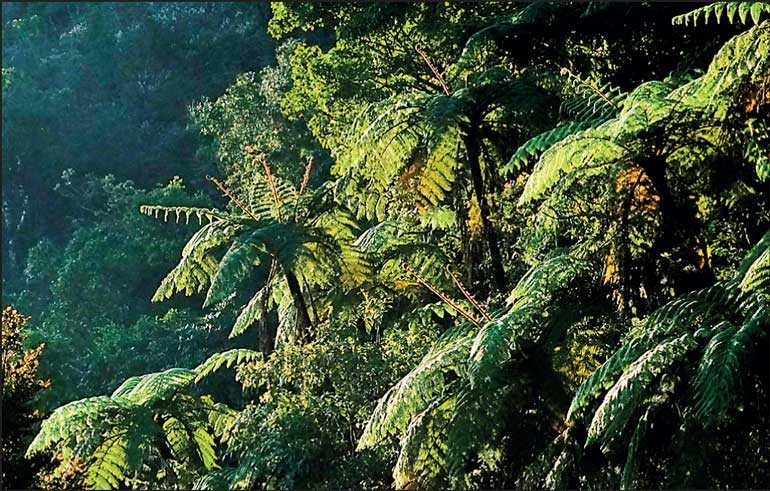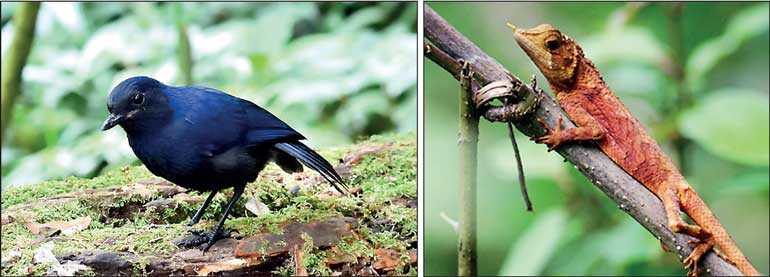Friday Feb 27, 2026
Friday Feb 27, 2026
Friday, 12 June 2020 00:00 - - {{hitsCtrl.values.hits}}



This year the theme of World Environment Day 2020 was ‘Celebrate Biodiversity’. With one million species facing extinction, there has never been a more important time to focus on biodiversity. As the COVID-19 pandemic curtailed any environmental campaigns to be done, outside of the premises, the hotel decided to focus on educating the staff on environment, bio-diversity and the importance of preserving Mother Nature.
We all talk about the balance needed in the Earth’s bio diverse ecosystem, but how much do we really know about biodiversity. A very productive session was carried out with the curtain raiser being a captivating video done on the biodiversity of Grand Hotel which was captivatedly narrated by its Learning and Development Manager Shenali Liyanage.
A very informative, insightful and precise presentation was conducted by its in-house Naturalist Senila Rajindrajith to the Grand Hotel team on the discovery of Nuwara Eliya according to history which was about 2,000 years ago and the transition and how civilisation happened about 200 years ago with the city being discovered by Dr. John Davy and Albert Watson. Biodiversity as explained by him is a contraction of biological diversity. It reflects the number, variety and variability of living organisms.
In his presentation, Senila pointed out the importance of Nuwara Eliya and its biological richness and how montane cloud forests help to balance Sri Lanka’s ecosystem in totality. When reviewing the flora of Nuwara Eliya, he pointed out how unique the flora system is, in cloud forests and how mosses and lichens perform as a main contributive factor towards sustaining the wetness of the cloud forests. Senila also described the hydraulic process of these forests and how it generates water which feeds all four major rivers in Sri Lanka.
Ecosystems are relying on all parts from the smallest bacteria to the largest vertebrate. It’s all interconnected.
Every living organism has a role to play in the maintenance of balance and Senila described the different species that live in Nuwara Eliya, most of whom are endemic and how they contribute towards balancing the ecosystem. It was revealed that from the 510 species of birds recorded in Sri Lanka, 60 of it live in Nuwara Eliya. 14 of the endemic species living in central highlands are recorded as highly endangered species according to the IUCN Red Data List.
Many bird watchers from around the world come to Nuwara Eliya to have a glimpse of the ‘Sri Lanka Whistling Thrush’ which is considered the rarest bird in Sri Lanka. Sri Lanka records 220 species of reptiles of which eight species are inhabitant in the region. The reason for the lower number of reptiles is the cold climatic condition. Out of 108 species of amphibians recorded in Sri Lanka, 13 species can be found, whilst 12 of which are endemic to the country and restricted to Nuwara Eliya.
When talking about the mammals in Sri Lanka, there are 140 recorded out of which over 20 species have been recorded in Nuwara Eliya. Mammals such as dusky-striped jungle squirrel, purple faced leaf monkey, and highland toque macaque are few endemic species that have been cited. One of the pleasant sites is to see the myriad of colourful butterflies, and according studies over 50 species are seen in Nuwara Eliya, whilst the total number of butterflies recorded in Sri Lanka is 245.
This informative session was an eye opener to all the staff and it was felt by them that it is onus on their part to preserve the biodiversity of Nuwara Eliya.
Another interesting event that was carried out was the Clean Plate Challenge amongst the staff during lunch time, where 12 staff from the departments were selected to have their meal where nothing of what was served remained in the plate, the water in the glass was consumed and table and dining etiquette maintained. All the staff competed with much eagerness and it was a pleasant sight to see the plates after the meal. It is envisaged that this challenge would be continued on a monthly basis.
The winner of the event was Suresh Thiruchelvam of the Finance Department.
The mastermind behind this innovative concept was the Sustainability Officer Waruna Palliyaguru.
Despite the setback due to COVID-19, a very productive Environmental Day program was conducted which gave the staff food for thought.
The message that Grand Hotel conveyed to the team was ‘Together we can act#for nature’.